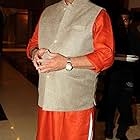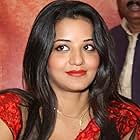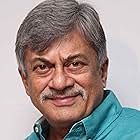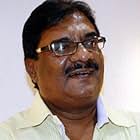While watching Dayanayak, I was completely unaware of the fact that this movie is entirely based on true events. In short, it is the story of sub-inspector Daya Nayak, who hails from a small, poor village in Karnataka. When forty innocent people are taken hostage by the Mumbai underworld, he wants to ask his superiors for their permission to interfere, but cannot reach them, and so he takes the decision for himself. He liberates the hostages successfully by killing four gangsters, and becomes a popular hero. His superior officer, tied to the underworld himself, is utterly displeased with Daya's behavior and tries to have him kicked out of the force, but the interior minister himself makes sure Daya Nayak becomes part of a special police unit dedicated to combat the underworld. Thus, Daya Nayak becomes a special agent with a license to kill. During less than five years, he finishes off no less than eighty gangsters in encounters, and becomes an almost legendary figure to the public. From the money collected by him from numerous rewards he received, he builds a school in his native village and hands it over to the government. However, neither the local politicians, nor the corrupt police and the underworld are pleased with Daya's rising star, and to get rid of him, they file official complaints against him for corruption.
On the other side, we have a fearsome, merciless mafia don, Yousuf Khalil, who wants to move his activity from Dubai to Mumbai, turning it into a kingdom of crime. Obviously, he and Daya Nayak are each other's worst enemies, both determined to kill the other.
Dayanayak is an action movie more than anything else. The film begins with a James Bond-like intro, followed by Khalid's arrival in Bangalore. The atmosphere of the movie remains pretty much in the spirit of James Bond, and the "licenced to kill" ingredient only strengthens that impression. Like we can see often in South Indian movies, the film is strongly hero-oriented, turning him almost into a superhero who can easily jump from the 10th floor and shoot a few of his adversaries on the way down. To add some more spice to the mix, "nayak" means "hero" in Hindi, a nomen-omen case of Donald Duck-like proportions, which only demonstrates how reality can sometimes surpass fiction!
That said, I find Sachin's portrayal of Daya Nayak far from impressive. In spite of his thorough preparation and some similarity to the real Daya Nayak, he looks more like a gray office clerk than an Indian version of Dirty Harry. In the action sequences he seems grotesquely out of place, while his dialogs are less than credible. Fortunately, Mahesh Manjrekar gives a sublime performance as the villain Yousuf Khalil. His appearances in the movie are a true lust for the eye. The actor who played Ashok Nayak (unfortunately I haven't been able to find his name) gives a memorable performance as well.
If this hadn't been a true story, I might have said: a weak and unoriginal script full of exaggerations and other improbabilities, resulting in a sub-standard action movie at best. But that wouldn't do justice to Mahesh Manjrekar's fine performance, some outstanding camera work, and the fact that Daya Nayak is a real life character after all. Therefore, I heartily recommend this somewhat obscure Kannada movie, in spite of its numerous imperfections.











